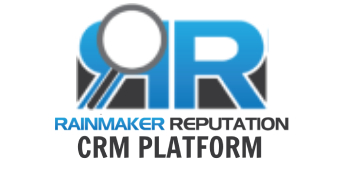
Unlocking Financial Success: Distinguishing Between Good Debt and Bad Debt
Is it possible to categorize debt as either a financial asset or a liability? This insightful exploration delves into the fundamental differences between good debt and bad debt, equipping you with the knowledge to make informed financial decisions. The common perception is that all debt is detrimental, often emphasizing the dangers of toxic debt and the pervasive debt crisis that affects numerous individuals. However, it’s essential to recognize that not all debts are created equal; some can serve as catalysts for financial advancement when managed wisely. By grasping the intricacies of good debt, you open doors to economic growth, stability, and improved opportunities for your financial future.
Discovering the Long-Term Benefits of Strategic Debt Investments
A key characteristic of good debt is its potential to enhance your financial position over time. Take, for example, a mortgage, which stands as a prevalent illustration of debt that can provide substantial long-term advantages. When obtained at a competitive interest rate, a mortgage not only secures your living space but also acts as a long-term investment that appreciates in value. By the conclusion of the mortgage term, you could possess a valuable asset that significantly increases your net worth. Other forms of beneficial debt include student loans and small business loans, both designed to improve professional capabilities or create income-generating opportunities, ultimately leading to greater financial success in the future.
Evaluating Affordability: The Fundamental Principle of Responsible Debt Use
Many households accumulate debt through the purchase of luxury items or furniture, frequently resulting in high-interest loans that can lead to lasting financial distress. Such debts are usually classified as bad debt, as the value of these acquisitions typically depreciates almost immediately after purchase. Moreover, these high-interest loans are frequently structured in a manner that entraps borrowers, making it exceedingly challenging to extricate themselves from financial obligations. This situation can adversely affect mental health and overall well-being, trapping individuals in precarious financial circumstances for extended periods. Therefore, it is crucial to evaluate the affordability of any debt you consider, ensuring that it aligns harmoniously with your long-term financial goals.
Streamlining Debt Management with Effective Payment Strategies
The most manageable debts are those that deliver clear benefits and can be conveniently consolidated into a single monthly payment. This method not only reduces stress but also enhances your ability to track and control your finances effectively. One practical solution for simplifying your repayment approach is a Debt Consolidation Loan. This financial instrument enables you to merge multiple debts into one manageable payment, eliminating the confusion of juggling various repayment schedules. By consolidating your debts, you can regain control over your financial health and focus on achieving your financial objectives.
If you believe a Debt Consolidation Loan could improve your financial situation, contact us or call 0333 577 5626. Our dedicated team is here to support you in enhancing your financial well-being through a streamlined monthly repayment plan.
Discover Essential Resources Recommended by Our Community
 Spotting Debt Consolidation Scams: A Quick Guide
Spotting Debt Consolidation Scams: A Quick Guide
Spotting Debt Consolidation Scams: Essential Tips for Financial Safety
 Debt from Coronavirus: Navigating Financial Challenges
Debt from Coronavirus: Navigating Financial Challenges
Debt from Coronavirus: Effective Strategies for Overcoming Financial Obstacles
 Secured Loans Arrears: What to Expect Next?
Secured Loans Arrears: What to Expect Next?
Secured Loans Arrears: What to Anticipate in Your Financial Journey
 Couple Up to Cut Back on Tax: Smart Saving Strategies
Couple Up to Cut Back on Tax: Smart Saving Strategies
Couple Up to Cut Back on Tax: Explore Innovative Saving Strategies for Financial Success
 County Court Judgments Explained: What You Need to Know
County Court Judgments Explained: What You Need to Know



No responses yet